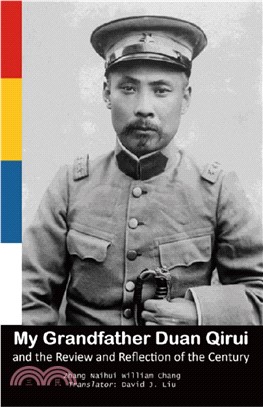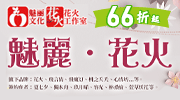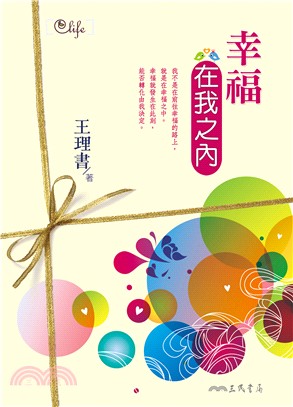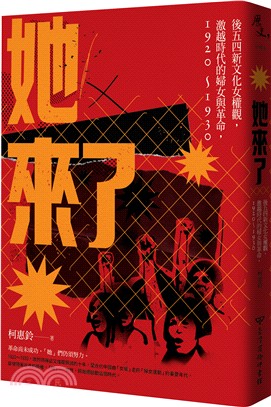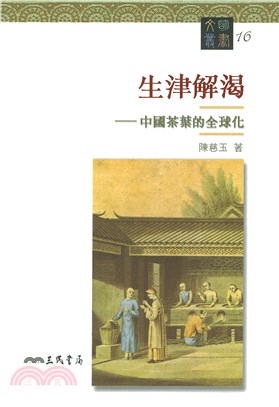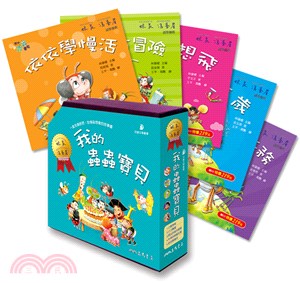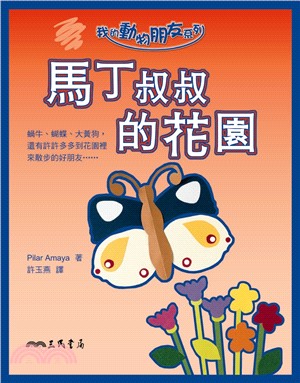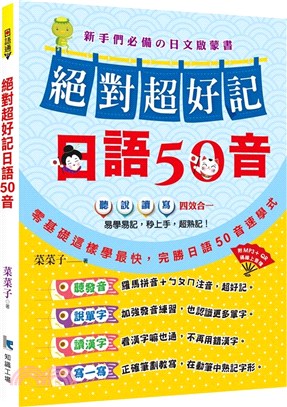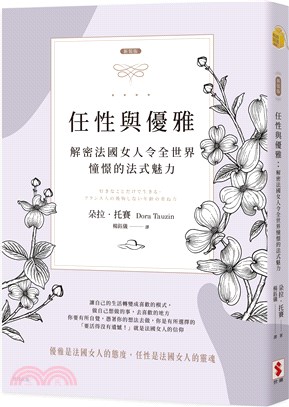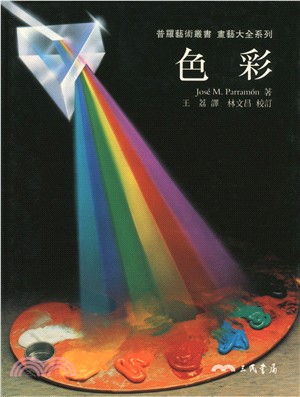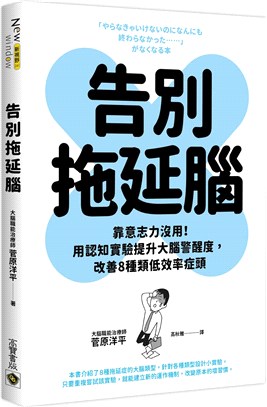我的外公段祺瑞及世紀回顧與省思(國際英文版)
商品資訊
系列名:名人自傳
ISBN13:9781665800358
替代書名:My Grandfather Duan Qirui and the Review and Reflection of the Century
出版社:漢世紀數位文化EHGBooks
作者:張乃慧; 張中柱
譯者:劉繼峰
出版日:2024/10/01
裝訂/頁數:平裝/718頁
規格:22.9cm*15.2cm*4cm (高/寬/厚)
重量:800克
版次:初版
預購中
下單可得紅利積點:59 點
相關商品
商品簡介
作者簡介
序
目次
書摘/試閱
商品簡介
Using time as a guiding thread, this book traces the life journey of Duan Qirui. From attending old-style private schools, his upbringing in a military camp, walking alone the one-thousand li journey at age 15 to join the army, attending Tianjin Military Academy, studying abroad in Germany, taking part in establishing the New Army at Xiaozhan, serving as the "artillery commander", assuming the position of the principal of the Baoding Military Academy and eventually becoming the important leader of the Beiyang Army and the head of the Republic of China government (ROC).
The book enumerates the contributions made by Duan Qirui to China's progress, including the initiation of China's military modernization, the insistence on the transformation of China's political system through "three creations of the Republic", and the promotion of China's entry into the Allied Powers to take part in the war against Germany, among others. At the same time, he not only opposed the monarchy dictatorship but also keenly recognized and opposed the "Knock down the Confucius' shop (打倒孔家店)" campaign promoted by the Chinese agents of the Soviet Union's Third Communist International. After became Zhizheng (執政the Chief Executive of the Republic of China, or the head of the state), he collaborated with Sun Yat-sen in seeking to convene a constitutional conference and persistently attempted to pursue the path of constitutional democracy to unify China.
The book also lists some historical facts that have been distorted on the mainland China for many years: during the era of Duan Qirui, remarkable achievements were made in China not only in politics, economy, culture, and diplomacy but also in creating an era of free speech, diverse opinions, and the emergence of outstanding talents. The book also provides a list of prominent figures who were active during that period.
In addition to reviewing the life of our grandfather, Duan Qirui who followed the principles of Confucianism, maintained the standard of morality and trustworthyness, the author also presents three of his articles, including "Internal Reflections". Furthermore, the book describes the real life and historical moments as seen from the perspective of the Duan family.
In response to the lies represented by the media for years, such as alleging that the "March 18 Massacre" was orchestrated by Duan Qirui and the "Xiyuan Loan" was selling out the nation, the book relies on historical records and eyewitness accounts, including firsthand testimonies from a high-ranking official who was present at the scene of the "March 18" incident and shared the observations with his descendant, to restore the truth of the historical events.
Throughout the writing, the author emphasizes the importance of Confucianism's influence on the moral character of the Chinese people. In the early 20th century, Duan Qirui, who initially served as a Qing military general and later became a high-ranking official in the Republic of China, was able to abandon the traditional "King’s-State (家天下)" approach and resist the wave of Soviet-style communism. Instead, he chose the path of republicanism and constitutional democracy. This can be traced back to the influence of Confucianism, which he received from a young age. Just as Christianity influenced the founding fathers of the United States, Confucianism deeply ingrained itself in Duan Qirui's bloodline, shaping his political aspirations and life path. The book's exposition is based on this context: without moral cultivation, an individual cannot go far on the right path; however, even with morally upright individuals, a society without check-and-balance of power, may succumb to the temptations of power, wealth, sex and fame, leading them astray. American founding father John Adams once emphasized, "Our Constitution was made only for a moral and religious people." This book tirelessly and extensively argues that in building a civilized society, (1) the importance of cultivating moral qualities in individuals from a young age should be recognized, and (2) the Acton's axiom, "power corrupts, absolute power corrupts absolutely", which is an objective law that is not subject to people's will, should be recognized. Therefore, the concept of "King’s-State" inevitably leads to corruption as power corrupts, resulting in being strong at first and then falling apart and eventually being replaced. On the other hand, the "Party-State (黨天下)" system, self-proclaimed to be superior to the decayed old world, experiences absolute corruption with absolute power and fails to catch up with the prosperity and renewal of the private capitalist market economy under constitutional democratic rule even after seventy years. Ultimately, it can only lead to the depletion of public trust and self-collapse.
The book enumerates the contributions made by Duan Qirui to China's progress, including the initiation of China's military modernization, the insistence on the transformation of China's political system through "three creations of the Republic", and the promotion of China's entry into the Allied Powers to take part in the war against Germany, among others. At the same time, he not only opposed the monarchy dictatorship but also keenly recognized and opposed the "Knock down the Confucius' shop (打倒孔家店)" campaign promoted by the Chinese agents of the Soviet Union's Third Communist International. After became Zhizheng (執政the Chief Executive of the Republic of China, or the head of the state), he collaborated with Sun Yat-sen in seeking to convene a constitutional conference and persistently attempted to pursue the path of constitutional democracy to unify China.
The book also lists some historical facts that have been distorted on the mainland China for many years: during the era of Duan Qirui, remarkable achievements were made in China not only in politics, economy, culture, and diplomacy but also in creating an era of free speech, diverse opinions, and the emergence of outstanding talents. The book also provides a list of prominent figures who were active during that period.
In addition to reviewing the life of our grandfather, Duan Qirui who followed the principles of Confucianism, maintained the standard of morality and trustworthyness, the author also presents three of his articles, including "Internal Reflections". Furthermore, the book describes the real life and historical moments as seen from the perspective of the Duan family.
In response to the lies represented by the media for years, such as alleging that the "March 18 Massacre" was orchestrated by Duan Qirui and the "Xiyuan Loan" was selling out the nation, the book relies on historical records and eyewitness accounts, including firsthand testimonies from a high-ranking official who was present at the scene of the "March 18" incident and shared the observations with his descendant, to restore the truth of the historical events.
Throughout the writing, the author emphasizes the importance of Confucianism's influence on the moral character of the Chinese people. In the early 20th century, Duan Qirui, who initially served as a Qing military general and later became a high-ranking official in the Republic of China, was able to abandon the traditional "King’s-State (家天下)" approach and resist the wave of Soviet-style communism. Instead, he chose the path of republicanism and constitutional democracy. This can be traced back to the influence of Confucianism, which he received from a young age. Just as Christianity influenced the founding fathers of the United States, Confucianism deeply ingrained itself in Duan Qirui's bloodline, shaping his political aspirations and life path. The book's exposition is based on this context: without moral cultivation, an individual cannot go far on the right path; however, even with morally upright individuals, a society without check-and-balance of power, may succumb to the temptations of power, wealth, sex and fame, leading them astray. American founding father John Adams once emphasized, "Our Constitution was made only for a moral and religious people." This book tirelessly and extensively argues that in building a civilized society, (1) the importance of cultivating moral qualities in individuals from a young age should be recognized, and (2) the Acton's axiom, "power corrupts, absolute power corrupts absolutely", which is an objective law that is not subject to people's will, should be recognized. Therefore, the concept of "King’s-State" inevitably leads to corruption as power corrupts, resulting in being strong at first and then falling apart and eventually being replaced. On the other hand, the "Party-State (黨天下)" system, self-proclaimed to be superior to the decayed old world, experiences absolute corruption with absolute power and fails to catch up with the prosperity and renewal of the private capitalist market economy under constitutional democratic rule even after seventy years. Ultimately, it can only lead to the depletion of public trust and self-collapse.
作者簡介
Zhang Naihui (張乃慧): Born in November 1930 in Tianjin. At that time, my parents and grandparents were also in Tianjin. In 1935, I moved to Songjiang, Shanghai with my parents. Later, I attended primary and secondary school in Shanghai. During my elementary school years, my mother hired a private tutor for us, teaching us the "Four Books" including Great Learning, Doctrine of the Mean, The Analects of Confucius, and Mencius, as well as other classical texts. We found that Zhongzhu’s memory and comprehension are better than we sisters, since even to this day, he can still recite passages from the original texts of the Four Books. At a critical moment in history, at the end of 1948 and the beginning of 1949, many of my classmates of my senior class at McTyeire School (or中西女中Zhongxi Girls' School) went abroad. I chose to stay behind, dreaming of building a democratic and free new China. In early 1949, I ran away from home and traveled from Shanghai to Beijing, where I enrolled in North China University (the predecessor of Renmin University of China). Shortly after, we were sent south to Hunan. I first worked as an "assistant" at the Hunan Revolutionary University and the Party School, but I was later transferred out due to my "bad background." I then joined Hunan University and taught English for most of my life until retirement. Speaking of this, there is another story. The former president of Hunan University, Zhu Fan, studied in Shanghai and was fluent in English. When he learned that I came from McTyeire, he recommended me to teach English at the university. At that time, all subjects except Chinese were taught by British and American teachers at McTyeire. After completing teacher training at East China Normal University, I joined the Foreign Language Office at Hunan University. Over the decades, due to my family background and ignorance in politics, I had made myself an object of criticism. Due to poor health, I retired early in 1979. Since my children moved to the United States, I have been alternating between living on both sides of the Pacific, finally settling in Los Angeles since 1990.
Zhang Zhongzhu (William Chang, 張中柱): Born in October 1931 in Tianjin. At the age of five, I moved to Songjiang with my family, and moved to Shanghai the following year. During my primary school years, along with my three older sisters, we studied at home, memorizing the "Four Books" and classical Chinese texts. When I attended Nanyang Model High School (南洋模範), I met teacher Jia Bingru (賈冰如), a mentor who opened my mind, introduced me to precise conceptual understanding and rigorous reasoning, and benefited me for a lifetime. Later, I was admitted to Tsinghua University, my father Zhang Daohong's alma mater. During my time at Tsinghua, I was labeled as a rightist and put under probation. After graduation, I was assigned to the Shandong Provincial Electric Power Department and gradually sent to rural areas in Fan County (範縣), the poorest area in Shandong. We only had two meals a day: thin corn porridge at 9 a.m. and moldy sweet potato buns at 4 p.m. Day after day, various diseases began to afflict my body. Liver swelling, chronic colitis, recurrent lung diseases. I was on the path to death. The local farmers' living conditions were extremely dire. I must thank the organization of the Electric Power Department for sending me here, as it allowed me to witness the so-called "workers and peasants’ alliance (工農聯盟)" of socialist revolution, which turned out to be nothing more than deceptive propaganda. In reality, it was an appalling, outrageous exploitation and deprivation of the peasants. Later, a large number of educated youth (知青) were sent to the countryside, and a small portion of urban residents had the opportunity to personally experience the hunger and arduous physical labor in rural areas. Eventually, the educated youth returned to the cities. However, the Chinese peasants, who have spent their entire lives at the bottom of society, without access to medical care, education, retirement benefits, and with their household registration (戶口) tied to the rural areas, have nowhere to go and have nowhere to seek justice. Their suffering knows no bounds. Chinese peasants are the group that has suffered the most in the Party-State. They have been deprived for far too long, and it is absolutely outrageous! Even now, peasants, rural migrant workers, and their descendants continue to face discrimination under the "laws" (i.e., the CCP policies). They work the hardest, endure the most difficult and lowest-paid jobs, but are denied access to the social welfare enjoyed by urban residents. Few people pay attention to them, sympathize with them, or advocate for their grievances. We cannot turn a blind eye to the oppression they endure. How can a person extinguish their sense of empathy, compassion, and sympathy? We eagerly await the day when the Party-State comes to an end, and the Chinese peasants and rural migrant workers can enjoy equal rights with the residents of Beijing and Shanghai.
Soon after arriving in Fan County, I was stripped of the "rightist" label. During a visit back to Shanghai, I applied to resign from my position in Shandong through the local authorities. After going through several setbacks, my resignation was eventually approved. Since I couldn't obtain Shanghai household registration, I applied to the Shanghai Public Security Bureau (上海市公安局) for permission to visit relatives overseas, which resulted in me being designated as a "traitor." This policy considered applying to go abroad as an act of treason, and it was only abolished after Richard Nixon's visit to China. During the Cultural Revolution, I was placed under the supervision of a neighborhood political control group (里弄專政組). Thanks to the close care and support of my relatives in the United States, I was not deported or physically harmed. With the financial support of my parents in Macau, I voluntarily taught dozens of children who had dropped out of school during the Cultural Revolution and were not afraid of political entanglements for eleven years. I taught them mathematics and physics at the elementary, middle, high school, and college levels. Once they developed logical thinking in mathematics and science, they could self-study other subjects. In the later stages of the Cultural Revolution, both Shanghai Third Girls' High School (formerly McTyeire School or Zhongxi Girls' School) and Shanghai Jiao Tong University expressed interest in hiring me as a teacher but were denied. In 1979, after receiving notice from Tsinghua University to correct my "rightist" label, the Shanghai Public Security Bureau approved my relocation to Macau. After six and a half years in Macau, I immigrated to the United States at the end of 1985.
I have always believed that the path to prosperity in the West lies in their recognition that "power corrupts, and absolute power corrupts absolutely." Therefore, they have established a system of constitutional democracy with checks and balances on power. Without a system of checks and balances in constitutional democracy, there can be no judicial independence to ensure fair competition, and it cannot promote the healthy development of the economy, trade, production, and technology through natural selection and rapid advancement. If productive forces cannot sustain healthy development and meet the growing material and spiritual needs of the people, it will lead to unrest and social instability.
One hundred and twenty years ago, Empress Dowager Cixi believed that as long as "adopting Western knowledge for its practical uses (西學為用)" and she persisted in maintaining "King’s-State (家天下)," China could catch up with the West. Then came Lenin and Stalin in the 20th century, who believed that nationalizing industrial and commercial sectors and collectivizing agriculture under socialist principles would eliminate wealth disparities and lead to rapid development of social productive forces, surpassing and replacing capitalist private ownership. However, they disregarded the axiom of Lord Acton, "power corrupts, and absolute power corrupts absolutely." Socialist state ownership, as proven in the Soviet Union, England, China, and all other countries, is incurably corrupt. Even projects implemented under the national system only yield temporary bubbles and have no bearing on the well-being of the people. On the other hand, "Party-State" brings calamity to the nation and the people, on a scale thousands of times greater than "King’s-State," because "Party-State" represents "absolute power corrupting absolutely."
It has been 101 years since the passing of Empress Dowager Cixi. The cognitive abilities of China's current leaders still have not surpassed hers. For China to return to the right path, it cannot evade the issue of institutional reform. To establish a constitutional democratic system, a large number of morally educated intellectuals is needed. This is the pent-up feelings in the heart of the author.
Zhang Zhongzhu (William Chang, 張中柱): Born in October 1931 in Tianjin. At the age of five, I moved to Songjiang with my family, and moved to Shanghai the following year. During my primary school years, along with my three older sisters, we studied at home, memorizing the "Four Books" and classical Chinese texts. When I attended Nanyang Model High School (南洋模範), I met teacher Jia Bingru (賈冰如), a mentor who opened my mind, introduced me to precise conceptual understanding and rigorous reasoning, and benefited me for a lifetime. Later, I was admitted to Tsinghua University, my father Zhang Daohong's alma mater. During my time at Tsinghua, I was labeled as a rightist and put under probation. After graduation, I was assigned to the Shandong Provincial Electric Power Department and gradually sent to rural areas in Fan County (範縣), the poorest area in Shandong. We only had two meals a day: thin corn porridge at 9 a.m. and moldy sweet potato buns at 4 p.m. Day after day, various diseases began to afflict my body. Liver swelling, chronic colitis, recurrent lung diseases. I was on the path to death. The local farmers' living conditions were extremely dire. I must thank the organization of the Electric Power Department for sending me here, as it allowed me to witness the so-called "workers and peasants’ alliance (工農聯盟)" of socialist revolution, which turned out to be nothing more than deceptive propaganda. In reality, it was an appalling, outrageous exploitation and deprivation of the peasants. Later, a large number of educated youth (知青) were sent to the countryside, and a small portion of urban residents had the opportunity to personally experience the hunger and arduous physical labor in rural areas. Eventually, the educated youth returned to the cities. However, the Chinese peasants, who have spent their entire lives at the bottom of society, without access to medical care, education, retirement benefits, and with their household registration (戶口) tied to the rural areas, have nowhere to go and have nowhere to seek justice. Their suffering knows no bounds. Chinese peasants are the group that has suffered the most in the Party-State. They have been deprived for far too long, and it is absolutely outrageous! Even now, peasants, rural migrant workers, and their descendants continue to face discrimination under the "laws" (i.e., the CCP policies). They work the hardest, endure the most difficult and lowest-paid jobs, but are denied access to the social welfare enjoyed by urban residents. Few people pay attention to them, sympathize with them, or advocate for their grievances. We cannot turn a blind eye to the oppression they endure. How can a person extinguish their sense of empathy, compassion, and sympathy? We eagerly await the day when the Party-State comes to an end, and the Chinese peasants and rural migrant workers can enjoy equal rights with the residents of Beijing and Shanghai.
Soon after arriving in Fan County, I was stripped of the "rightist" label. During a visit back to Shanghai, I applied to resign from my position in Shandong through the local authorities. After going through several setbacks, my resignation was eventually approved. Since I couldn't obtain Shanghai household registration, I applied to the Shanghai Public Security Bureau (上海市公安局) for permission to visit relatives overseas, which resulted in me being designated as a "traitor." This policy considered applying to go abroad as an act of treason, and it was only abolished after Richard Nixon's visit to China. During the Cultural Revolution, I was placed under the supervision of a neighborhood political control group (里弄專政組). Thanks to the close care and support of my relatives in the United States, I was not deported or physically harmed. With the financial support of my parents in Macau, I voluntarily taught dozens of children who had dropped out of school during the Cultural Revolution and were not afraid of political entanglements for eleven years. I taught them mathematics and physics at the elementary, middle, high school, and college levels. Once they developed logical thinking in mathematics and science, they could self-study other subjects. In the later stages of the Cultural Revolution, both Shanghai Third Girls' High School (formerly McTyeire School or Zhongxi Girls' School) and Shanghai Jiao Tong University expressed interest in hiring me as a teacher but were denied. In 1979, after receiving notice from Tsinghua University to correct my "rightist" label, the Shanghai Public Security Bureau approved my relocation to Macau. After six and a half years in Macau, I immigrated to the United States at the end of 1985.
I have always believed that the path to prosperity in the West lies in their recognition that "power corrupts, and absolute power corrupts absolutely." Therefore, they have established a system of constitutional democracy with checks and balances on power. Without a system of checks and balances in constitutional democracy, there can be no judicial independence to ensure fair competition, and it cannot promote the healthy development of the economy, trade, production, and technology through natural selection and rapid advancement. If productive forces cannot sustain healthy development and meet the growing material and spiritual needs of the people, it will lead to unrest and social instability.
One hundred and twenty years ago, Empress Dowager Cixi believed that as long as "adopting Western knowledge for its practical uses (西學為用)" and she persisted in maintaining "King’s-State (家天下)," China could catch up with the West. Then came Lenin and Stalin in the 20th century, who believed that nationalizing industrial and commercial sectors and collectivizing agriculture under socialist principles would eliminate wealth disparities and lead to rapid development of social productive forces, surpassing and replacing capitalist private ownership. However, they disregarded the axiom of Lord Acton, "power corrupts, and absolute power corrupts absolutely." Socialist state ownership, as proven in the Soviet Union, England, China, and all other countries, is incurably corrupt. Even projects implemented under the national system only yield temporary bubbles and have no bearing on the well-being of the people. On the other hand, "Party-State" brings calamity to the nation and the people, on a scale thousands of times greater than "King’s-State," because "Party-State" represents "absolute power corrupting absolutely."
It has been 101 years since the passing of Empress Dowager Cixi. The cognitive abilities of China's current leaders still have not surpassed hers. For China to return to the right path, it cannot evade the issue of institutional reform. To establish a constitutional democratic system, a large number of morally educated intellectuals is needed. This is the pent-up feelings in the heart of the author.
序
★Translator's Postface★
Since the book in Chinese was authored by my mother and my uncle, I felt obligated to take on the task of translating it into English, even though my experience only qualifies me as a “tech guy”.
I wouldn’t say it’s easy for me to understand fully the Classical Chinese found in the book time after time, let alone these “ancient” poems and lyrics. Fortunately, my mother, in her 90s, is still around and can lend me a helping hand. (1) When there were doubts about the accurate translation, the original Chinese is often left in parentheses and people can formulate their own interpretation. (2) In other cases, the names in Chinese are left beside their English translation for easier matching and identification. (3) Any text in italics are extra description added by the translator.
In terms of freedom of speech, freedom of the press, freedom of organization, the free market, and the practice of democratic government, such as the separation of powers, the first decade and a half of the Republic of China (the Beiyang government, or the Beiyang Period of the Republic of China, which was the internationally recognized government of China between 1912 and 1928) was much better than the years that followed, especially compared to the disastrous seventy years of Communist rule in China, during which tens of millions of its citizens died unnaturally. Both nourished by the Soviets, the Nationalists and Communists tended to bad-mouth the Beiyang government in order to seize power. Therefore, this book can serve as a different voice that seldom gets a chance to be heard in both the Chinese-speaking world and the English-speaking world.
As the first freshman class after the Cultural Revolution in China, I attended Fudan University in Shanghai in 1978, majoring in Math. In my sophomore year, I came to the U.S. and studied Computer Sciences and Math at the University of Texas at Austin, and received a master degree in 1984. After graduation, I worked as a software engineer and analyst for various firms, eventually spending the last twenty-seven years before retirement working on Wall Street for Citibank, EBS, SocGen, etc.
Liu Jifeng (劉繼峰 or David J. Liu)
Since the book in Chinese was authored by my mother and my uncle, I felt obligated to take on the task of translating it into English, even though my experience only qualifies me as a “tech guy”.
I wouldn’t say it’s easy for me to understand fully the Classical Chinese found in the book time after time, let alone these “ancient” poems and lyrics. Fortunately, my mother, in her 90s, is still around and can lend me a helping hand. (1) When there were doubts about the accurate translation, the original Chinese is often left in parentheses and people can formulate their own interpretation. (2) In other cases, the names in Chinese are left beside their English translation for easier matching and identification. (3) Any text in italics are extra description added by the translator.
In terms of freedom of speech, freedom of the press, freedom of organization, the free market, and the practice of democratic government, such as the separation of powers, the first decade and a half of the Republic of China (the Beiyang government, or the Beiyang Period of the Republic of China, which was the internationally recognized government of China between 1912 and 1928) was much better than the years that followed, especially compared to the disastrous seventy years of Communist rule in China, during which tens of millions of its citizens died unnaturally. Both nourished by the Soviets, the Nationalists and Communists tended to bad-mouth the Beiyang government in order to seize power. Therefore, this book can serve as a different voice that seldom gets a chance to be heard in both the Chinese-speaking world and the English-speaking world.
As the first freshman class after the Cultural Revolution in China, I attended Fudan University in Shanghai in 1978, majoring in Math. In my sophomore year, I came to the U.S. and studied Computer Sciences and Math at the University of Texas at Austin, and received a master degree in 1984. After graduation, I worked as a software engineer and analyst for various firms, eventually spending the last twenty-seven years before retirement working on Wall Street for Citibank, EBS, SocGen, etc.
Liu Jifeng (劉繼峰 or David J. Liu)
目次
About the Authors
Introduction
Contents
Preface
1. Overview of a lifetime
2. Moral Quality, Vital for These in Power
3. The farmer's son
4. Grandson of a general Lived in the barracks at Seven
5. The sky is falling! Grandfather is gone
6. Walking over two thousand li to join the military
7. The ground collapsed! Lost both parents
8. Tianjin Military Academy
9. Studying in Germany
10. The first "artillery commander"
11. Pioneering the Modernization of the Army
12. The principal of the first modern military college
13. Yuan Shikai made a match, Duan married Zhang Peiheng
14. Marching to the beat of his own drum
15. The first act, Force the Imperial Court to abdicate
16. The second act, Boycott Yuan Shikai's coronation as emperor
17. The third act, Fighting Zhang Xun and Restoration
18. Declare war on Germany
19. Progress in the early years of the ROC is unparalleled in history
20. Progressive reform step by step, task by task
21. Duan Qirui's cabinet: utilize talents and experts
22. Fairness, Integrity and Principles
23. Focus on things not on people
24. Duan Qirui in the eyes of others
25. Economy expanded rapidly at the birth of ROC
26. Freedom of speech, press and publication in the Beiyang period
27. Anfu Congress
28. Letting go of attachment, take refuge in Buddhism
29. Content with simplified life, practice what one preaches
30. Moral standard and Clever Deception - Internal Reflections
31. Heavenly principles as the foundation and humanity as the guide - External Review
32. On the Similarities and Differences of Sages and Heroes
33. Grandpa and Sun Yat-sen
34. Grandpa and Xu Shuzheng
35. Each has their own calculation - Duan Qirui and Japan
36. The Nishihara Loan
37. "March 18th" tragedy, the kneel down
38. Declassification of Soviet archives and "March 18"
39. Diplomacy in the Beiyang Period
40. Three up and three down
41. Grandfather's life moments
42. Take part in building Zhengfeng Coal Mine
43. Grandpa and Go Chess
44. Not to be bought by Japan, relocated to Shanghai
45. Lifelong Writing, lost in bombing
46. Stories of the kids
47. Passing away on the eve of the War with Japan
48. Resting in Peace fourteen years after death
49. Leaving a Will of "Eight Don'ts"
50. Duan's family
Postscript
Translator’s Postface
Introduction
Contents
Preface
1. Overview of a lifetime
2. Moral Quality, Vital for These in Power
3. The farmer's son
4. Grandson of a general Lived in the barracks at Seven
5. The sky is falling! Grandfather is gone
6. Walking over two thousand li to join the military
7. The ground collapsed! Lost both parents
8. Tianjin Military Academy
9. Studying in Germany
10. The first "artillery commander"
11. Pioneering the Modernization of the Army
12. The principal of the first modern military college
13. Yuan Shikai made a match, Duan married Zhang Peiheng
14. Marching to the beat of his own drum
15. The first act, Force the Imperial Court to abdicate
16. The second act, Boycott Yuan Shikai's coronation as emperor
17. The third act, Fighting Zhang Xun and Restoration
18. Declare war on Germany
19. Progress in the early years of the ROC is unparalleled in history
20. Progressive reform step by step, task by task
21. Duan Qirui's cabinet: utilize talents and experts
22. Fairness, Integrity and Principles
23. Focus on things not on people
24. Duan Qirui in the eyes of others
25. Economy expanded rapidly at the birth of ROC
26. Freedom of speech, press and publication in the Beiyang period
27. Anfu Congress
28. Letting go of attachment, take refuge in Buddhism
29. Content with simplified life, practice what one preaches
30. Moral standard and Clever Deception - Internal Reflections
31. Heavenly principles as the foundation and humanity as the guide - External Review
32. On the Similarities and Differences of Sages and Heroes
33. Grandpa and Sun Yat-sen
34. Grandpa and Xu Shuzheng
35. Each has their own calculation - Duan Qirui and Japan
36. The Nishihara Loan
37. "March 18th" tragedy, the kneel down
38. Declassification of Soviet archives and "March 18"
39. Diplomacy in the Beiyang Period
40. Three up and three down
41. Grandfather's life moments
42. Take part in building Zhengfeng Coal Mine
43. Grandpa and Go Chess
44. Not to be bought by Japan, relocated to Shanghai
45. Lifelong Writing, lost in bombing
46. Stories of the kids
47. Passing away on the eve of the War with Japan
48. Resting in Peace fourteen years after death
49. Leaving a Will of "Eight Don'ts"
50. Duan's family
Postscript
Translator’s Postface
書摘/試閱
●1. Overview of a lifetime●
Before the age of about ten, time seems to move in slow motion, everything unfolding at a leisurely pace. This "film reel" of life suddenly accelerates after reaching thirty. Season after season, year after year, time swiftly slips away. It is at this moment that people become aware of the brevity of life. Each person only has one lifetime. They cannot choose the era they are born in, their family, or even certain aspects of themselves (such as intelligence or appearance). However, everyone can choose to be an upright person.
Grandfather Duan Qirui was such a person—steadfast, honest, and upright. Despite facing numerous setbacks, he remained unchanged from his principle throughout his life. His life spanned seventy-one years from 1865 to 1936.
1865: In the year 1865, Grandfather was born in a rural area of Hefei, Anhui. His mother took care of the household chores, while his father worked on a few acres of farmland. Later on, his parents blessed him with a younger sister and two younger brothers. His sister was six years younger than him, and his brothers were eight and nine years younger. Despite the family not being affluent, his parents persisted in sending their eldest son to study at an old-style private school (私塾). In a society where commerce was underdeveloped and agricultural productivity was low, education was highly regarded with the saying, "All things in the world are ordinary, only being a scholarr is second to none (万般皆下品,惟有读书高)."
1872 to 1779: Grandfather was between the ages of seven and fourteen. After the domestic war settled down, his grandfather, General Duan Pei (段佩), of the Huai Army (淮军), brought his grandson to the Suqian (宿迁) Barracks in northern Jiangsu. In addition to continuing his education at an old-style private school, Duan Pei personally taught and guided his grandson for seven years. This special experience forged an unbreakable bond between Grandfather and the military.
1879: At the age of fourteen, Grandfather experienced the sudden passing of his grandfather, General Duan Pei. He had to return to his parents' side. Besides helping his mother take care of his younger siblings, he also worked in the fields with his father. From the age of five to fourteen, Grandfather had already spent nine years studying at the old-style private school, extensively reading the Four Books, Five Classics (四书五经), and A Hundred Schools of Thought (诸子百家). At a time when the population was mostly illiterate, he had become quite the scholar, understanding concepts like "what's the value of rituals without virtue in heart? what's the value of music, without virtue? (人而不仁,如礼何?人而不仁,如乐何?)" " Wealth and honors attained through immoral means are to me as empty as floating clouds (不义而富且贵,于我如浮云)"; During these formative years, he established the aspiration of "When in poverty, keep personal virtues; when becoming prosperous, improve the world (穷则独善其身,达则兼善天下)" and formed a moral compass of honesty, benevolence, and righteousness in his interactions with others and in his conduct.
1880: At the age of fifteen, Grandfather made a resolute decision to bid farewell to his family, and to seek refuge in a Qing army unit stationed far away, which was under the command of Duan Congde (段从德), his father’s cousin. Over a span of more than four months, traveling for over two thousand li (about 600 miles), he traversed mountains and rivers alone on foot, making his way from Hefei, Anhui, to Weihai, Shandong. When Grandfather arrived at Weihai Wei (威海卫), he had just turned sixteen years old. From that moment on, he embarked on his military career.
1882: Grandfather's father was murdered by a criminal on his way home after visiting his son in the north, stealing his cash. The grief-stricken mother, unable to bear the pain, passed away seven months later, leaving behind three underage children. Grandfather, at the young age of eighteen and a new soldier, took on the responsibility of caring for his younger siblings. From then on, he had been taking care of his brothers and sisters.
1885: At the age of 20, with the highest score, Gandfather was admitted to Tianjin Military Academy (天津武备学堂) founded by Li Hongzhang (李鸿章) during the "Westernization Movement (洋务运动)". He studied science at the school with a specialization in artillery. Two years later, at the age of 22, he graduated with top honors (Source: "Chronicle of Duan Qirui 《段祺瑞年谱》," by Wu Tingxie 吴廷燮, in "Collection of Miscellaneous Modern Records《近代稗海》," Volume 4, p. 603).
Thirteen years later, all the students in this school died in a bloody battle with the enemy forces that invaded Tianjin, and the school was destroyed.
Before the age of about ten, time seems to move in slow motion, everything unfolding at a leisurely pace. This "film reel" of life suddenly accelerates after reaching thirty. Season after season, year after year, time swiftly slips away. It is at this moment that people become aware of the brevity of life. Each person only has one lifetime. They cannot choose the era they are born in, their family, or even certain aspects of themselves (such as intelligence or appearance). However, everyone can choose to be an upright person.
Grandfather Duan Qirui was such a person—steadfast, honest, and upright. Despite facing numerous setbacks, he remained unchanged from his principle throughout his life. His life spanned seventy-one years from 1865 to 1936.
1865: In the year 1865, Grandfather was born in a rural area of Hefei, Anhui. His mother took care of the household chores, while his father worked on a few acres of farmland. Later on, his parents blessed him with a younger sister and two younger brothers. His sister was six years younger than him, and his brothers were eight and nine years younger. Despite the family not being affluent, his parents persisted in sending their eldest son to study at an old-style private school (私塾). In a society where commerce was underdeveloped and agricultural productivity was low, education was highly regarded with the saying, "All things in the world are ordinary, only being a scholarr is second to none (万般皆下品,惟有读书高)."
1872 to 1779: Grandfather was between the ages of seven and fourteen. After the domestic war settled down, his grandfather, General Duan Pei (段佩), of the Huai Army (淮军), brought his grandson to the Suqian (宿迁) Barracks in northern Jiangsu. In addition to continuing his education at an old-style private school, Duan Pei personally taught and guided his grandson for seven years. This special experience forged an unbreakable bond between Grandfather and the military.
1879: At the age of fourteen, Grandfather experienced the sudden passing of his grandfather, General Duan Pei. He had to return to his parents' side. Besides helping his mother take care of his younger siblings, he also worked in the fields with his father. From the age of five to fourteen, Grandfather had already spent nine years studying at the old-style private school, extensively reading the Four Books, Five Classics (四书五经), and A Hundred Schools of Thought (诸子百家). At a time when the population was mostly illiterate, he had become quite the scholar, understanding concepts like "what's the value of rituals without virtue in heart? what's the value of music, without virtue? (人而不仁,如礼何?人而不仁,如乐何?)" " Wealth and honors attained through immoral means are to me as empty as floating clouds (不义而富且贵,于我如浮云)"; During these formative years, he established the aspiration of "When in poverty, keep personal virtues; when becoming prosperous, improve the world (穷则独善其身,达则兼善天下)" and formed a moral compass of honesty, benevolence, and righteousness in his interactions with others and in his conduct.
1880: At the age of fifteen, Grandfather made a resolute decision to bid farewell to his family, and to seek refuge in a Qing army unit stationed far away, which was under the command of Duan Congde (段从德), his father’s cousin. Over a span of more than four months, traveling for over two thousand li (about 600 miles), he traversed mountains and rivers alone on foot, making his way from Hefei, Anhui, to Weihai, Shandong. When Grandfather arrived at Weihai Wei (威海卫), he had just turned sixteen years old. From that moment on, he embarked on his military career.
1882: Grandfather's father was murdered by a criminal on his way home after visiting his son in the north, stealing his cash. The grief-stricken mother, unable to bear the pain, passed away seven months later, leaving behind three underage children. Grandfather, at the young age of eighteen and a new soldier, took on the responsibility of caring for his younger siblings. From then on, he had been taking care of his brothers and sisters.
1885: At the age of 20, with the highest score, Gandfather was admitted to Tianjin Military Academy (天津武备学堂) founded by Li Hongzhang (李鸿章) during the "Westernization Movement (洋务运动)". He studied science at the school with a specialization in artillery. Two years later, at the age of 22, he graduated with top honors (Source: "Chronicle of Duan Qirui 《段祺瑞年谱》," by Wu Tingxie 吴廷燮, in "Collection of Miscellaneous Modern Records《近代稗海》," Volume 4, p. 603).
Thirteen years later, all the students in this school died in a bloody battle with the enemy forces that invaded Tianjin, and the school was destroyed.
主題書展
更多
主題書展
更多書展本週66折
您曾經瀏覽過的商品
購物須知
為了保護您的權益,「三民網路書店」提供會員七日商品鑑賞期(收到商品為起始日)。
若要辦理退貨,請在商品鑑賞期內寄回,且商品必須是全新狀態與完整包裝(商品、附件、發票、隨貨贈品等)否則恕不接受退貨。



